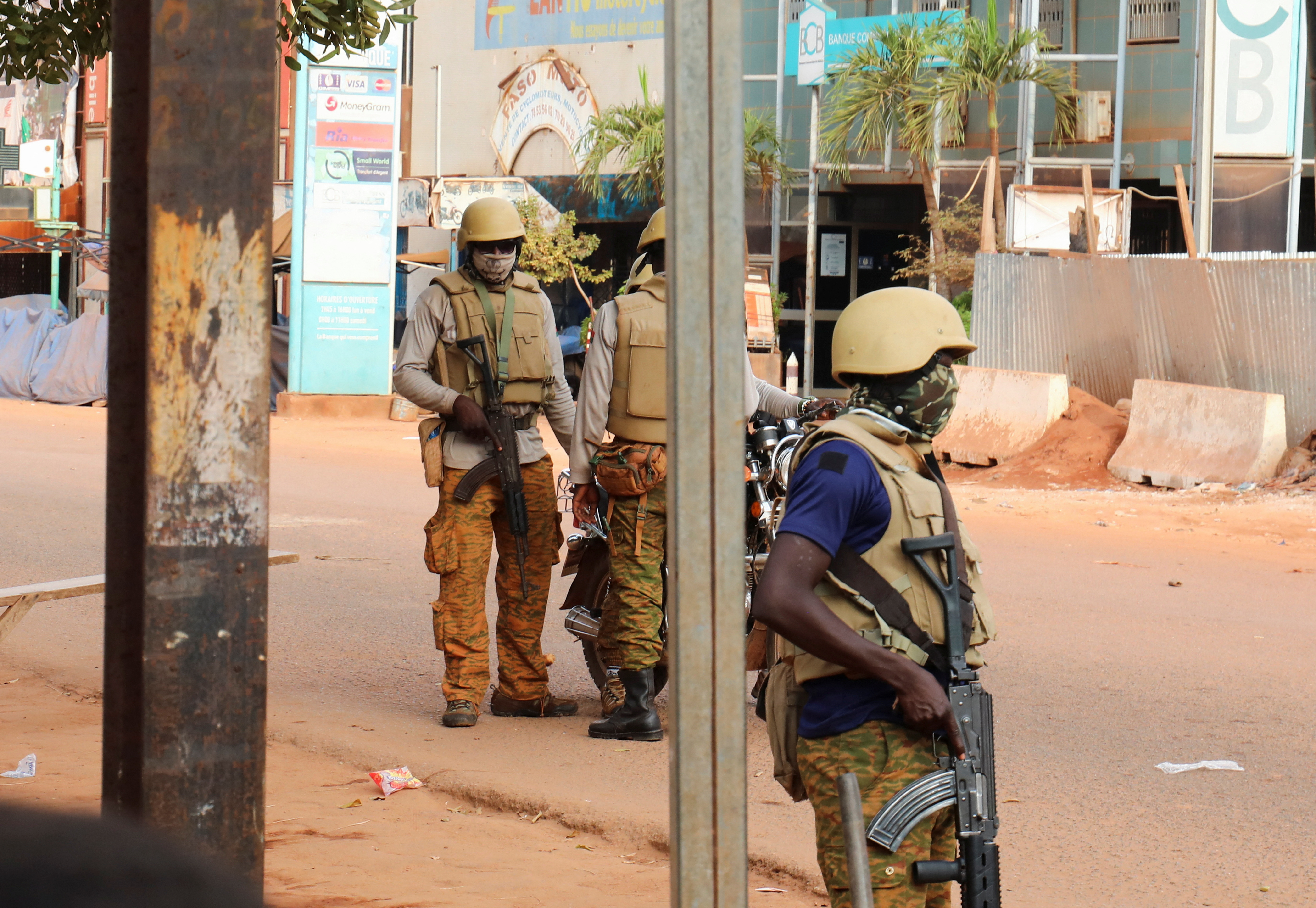
On September 30, Burkina Faso military leader President Paul-Henri Damiba was deposed in the country’s second coup in a year, as army Captain Ibrahim Traore took charge, dissolving the transitional government and suspending the constitution.
The 34-year-old Traore said on Friday evening that a group of officers had decided to remove Damiba due to his inability to deal with an armed uprising in the country that has worsened in the past nine months.
Damiba resigned from his post on Sunday, fleeing to neighbouring Togo.
Tensions have been high in Burkina Faso since Friday, with clashes occurring between protesters and security forces.
Here are the key details of all that has happened:
How did things get here?
On January 24, Burkina Faso’s army, led by Damiba, announced it had deposed President Roch Kabore after more than six years in power, following several days of unrest in the capital Ouagadougou.
Damiba cited the failure of the Kabore administration to unite the country and control the deteriorating security situation as reasons for ousting the civilian government.

Since 2015, Burkina Faso has been caught up in an escalating wave of violence attributed to rebel fighters allied to both al-Qaeda and the ISIL (ISIS) group, killing thousands of people and further displacing two million. Analysts have said this has made it the new epicentre of conflict in the Sahel.
While the move sparked some celebration among anti-government protesters, international actors expressed concern about the move, including nations the United States and France.
The West African regional bloc Economic Community of West African States (ECOWAS) suspended Burkina Faso from the organisation, demanding the Damiba-led government hold elections as soon as possible.
What happened under Damiba’s rule?
Despite Damiba’s promises to improve the security situation in the country, the crisis worsened under his government.
According to the Armed Conflict Location & Event Data Project (ACLED), attacks by armed groups increased by 23 percent in the five months after former leader Damiba took over.
In June, Mahamadou Issoufou, former president of Niger and a mediator between Burkina Faso and ECOWAS said Ouagadougou only controlled 60 percent of the country and the remaining territory was outside state control.
Damiba was also criticised for seemingly taking a more pro-France stance in working together with the former coloniser to root out armed groups, as anti-France sentiment has risen in former colonies.

Some in the country have argued the government should seek help from Moscow, mirroring the route neighbouring Mali has taken in allowing the private Russian mercenary firm Wagner group to operate within its borders.
On the economic front, the UN highlighted Burkina Faso, a country of 16 million people, as one of several west African nations facing an “alarming level” of hunger with the country facing the worst hunger crisis in six years with more than 630,000 people on the brink of starvation.
Blockades of towns by armed groups have made it difficult for aid to reach those in need, the UN has said.
Who is Damiba’s successor, Ibrahim Traore?
Prior to being catapulted to the highest office in the land after overthrowing Dmaiba, Traore was a relatively low-ranking officer running an artillery regiment in a small northern town.
Little else is known of the 34-year-old and his supporting officers, he has claimed that he will not hold power for too long.
In an interview with French state broadcaster RFI, Traore has said a national conference will appoint a new interim leader by the end of the year – one who could be civilian or military – and honour an agreement with West Africa’s regional bloc and oversee a return to civilian rule by 2024.
“We did not come to continue, we did not come for a particular purpose,” he said. “All that matters when the level of security returns is the fight, its development.”
The new leader also downplayed accusations from coup supporters that Damiba was being protected by the French and with their help was planning to launch a counter-coup.
“There are many partners. France is a partner. There is no particular target,” he told RFI.
What have the reactions been like?
There has been an outpouring of condemnation internationally for the overthrow of Damiba.
ECOWAS said that it came at an “inopportune” time when progress was being made towards a return to constitutional order in the West African state.
“ECOWAS reaffirms its unequivocal opposition to any seizure or maintenance of power by unconstitutional means,” it said in a statement shared on social media.
African Union chief Moussa Faki Mahamat condemned the “unconstitutional change of government” and urged the government to prevent acts of violence and threats to the civilian populations
France told its citizens in Ouagadougou, believed to number between 4,000 and 5,000, to stay home, while the European Union expressed “concern” at the unfolding events.







